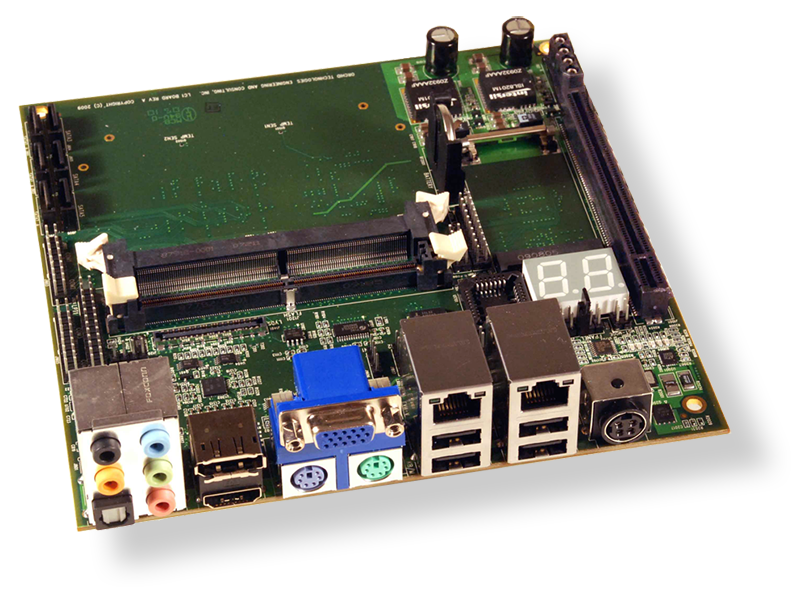Design Note #72
In today’s ever-changing personal and industrial computer marketplaces, the ability to rapidly adapt to evolving technologies is critical. Advancing processor technologies and end-of-life component procurement issues can have a serious impact on design and development budgets, and complicates upgrade and support for existing products in the field. Custom carrier boards make computer system upgrades simple. A carrier board capable of docking multiple computer modules preserves product development investment by allowing an upgrade path in which only the CPU functionality needs to be changed. The basic mechanical form factor, industry-standard peripherals, and communications can remain in place, thus preserving product life-cycle and saving on redundant development and testing costs.
A custom carrier board provides the mechanical and electrical interfaces, acting as a bridge between the replaceable computer CPU module and the integrated system. OTEC’S custom carrier boards match board form factor, power requirements, system interfaces, and communications. The custom nature of the design allows for product-specific interfaces that cannot be found in an off-the-shelf computer, such as special analog and digital interfaces and system- specific cabling interfaces. When the time comes to move to a newer processor, or when that memory device reaches its end-of life, only the CPU module needs to be replaced.
Today’s custom carrier boards make use of PCI Express interconnectivity. The custom ITX Carrier Board shown below includes a PCI Express socket for expansion capability. Typical uses of the PCI Express Socket are WiFi Modems, WAN Modems, and video frame grabber sub-systems.
The development of custom electronic products for our OEM clients is OTEC’s entire business. The design of carrier board hardware with rapid design cycles, demanding technical requirements, and unforgiving schedules sets us apart. Contact OTEC today!
